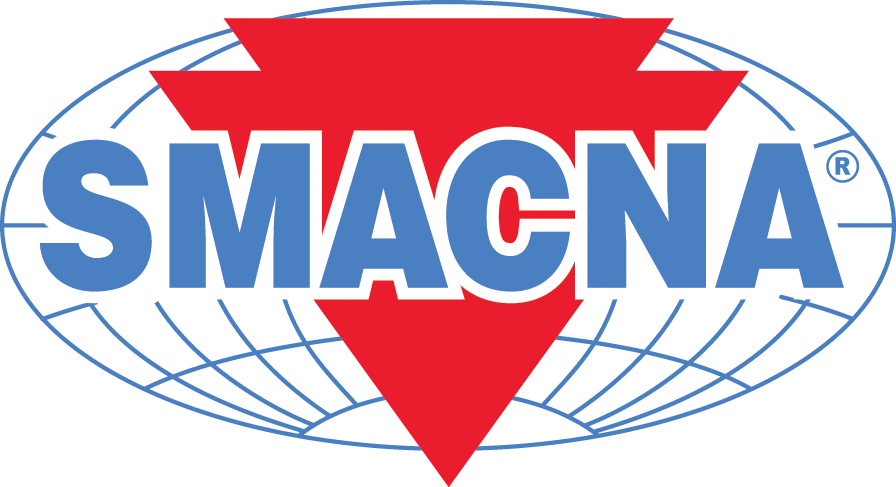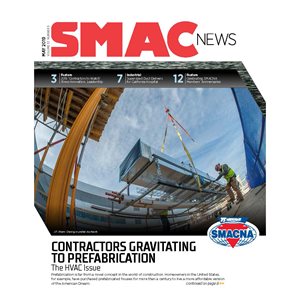Capitol Hill Update - A SMACNA Priority: Contract Change Order Reform Introduced in Congress
Due to its popularity with contractors nationwide, federal change order reform has recently been reintroduced in Congress. It has bipartisan support and a promising future of passage.

Due to its popularity with contractors nationwide, federal change order reform has recently been reintroduced in Congress. It has bipartisan support and a promising future of passage.
The Small Business Payment for Performance Act of 2019 (H.R. 2344) reflects SMACNA members’ suggestions for improving contractor payment conditions on federal construction.
The bill would make long overdue reforms advocated by SMACNA’s many federal contractors to resolve change order payment disputes more quickly and fairly.
The Small Business Payment for Performance Act of 2019 forces agencies to be accountable for changed work they order by funding their own construction projects in a timely manner instead of diverting that financial burden to the small contractors.
This important legislation would allow contractors to submit a request for equitable adjustment (REA) or a project contract fee adjustment to an agency that had approved a performed change order to a project’s original design or scope. Once the agency receives the REA, it must pay 50 percent of the billed change order work amount in a timely manner to offset extra costs.
While this legislation is not the entire solution to the millions of dollars in change order inequities that specialty contractors face every year, it is a significant first step most worthy of passage. Mitigating the risks imposed on small construction contractors will encourage small business participation in the federal construction marketplace, driving competition and decreasing prices for the federal government.
SMACNA has told the co-sponsors and the full House of Representatives that SMACNA strongly agrees with the language and intent of H.R. 2344.
“Equitable changes to the contract, known as change orders, are ubiquitous on construction projects and slow approval can result in delayed payment,” said the bill’s co-sponsors Reps. Pete Stauber (R-8th-Minnesota) and Marc Veasey (D-33rd-Texas) when they introduced H.R. 2344. “Small businesses typically do not have enough capital and resources to sustain long periods of nonpayment and are dependent on a stable cash flow to stay afloat.”
“Changes to scope of work on a contract can be initiated, unilaterally, by one party; often, the federal agency. Small businesses perform the changed work, incurring out-of-pocket costs for labor, supplies, etc. The work that small businesses perform, at the behest of the agency, are done at great financial risk to the small business. Unfortunately, small businesses are not being paid in a timely manner, or at all, for the changed work completed,” they said.
After pushing legislation through the Small Business Committee by an overwhelming vote (18-3) during the 115th Congress last year, SMACNA and the bill co-sponsors were disappointed that it lost out to the short election year calendar. That bipartisan legislation, co-sponsored by Reps. Brian Fitzpatrick (R-8th-Pennsylvania) and Stephanie Murphy (D-7th-Florida), was reported to the floor as H.R. 2594 in June 2017 but did not receive an expected floor vote.
Rep. Stauber also addressed the issue at the recent CEA National Issues Conference and asked members to help build his co-sponsor list by urging their lawmakers to pass the bill out of the Small Business Committee.
H.R. 2344, while just introduced, is expected to see positive consideration in the House Small Business Committee by this summer.
Concurrently on the Senate side, SMACNA, its member firms and allies are seeking a Senate sponsor willing to advance a Senate companion to the House bill. With a version of the change order reform bill moving on both sides of Congress, the odds of passage would significantly increase this year.
Members may read SMACNA’s letter to the House: smac.news/6.
Members are urged to contact their legislators on SMACNA’s Take Action web page.
Published: May 20, 2019
IN THIS ISSUE
2019 'Contractors to Watch’ Stress Innovation, Leadership
This feature showcases a select group of SMACNA contractors who are making a difference and having a positive impact in their local areas, whether through innovation, engagement or expansion.
Capitol Hill Update - A SMACNA Priority: Contract Change Order Reform Introduced in Congress
Due to its popularity with contractors nationwide, federal change order reform has recently been reintroduced in Congress. It has bipartisan support and a promising future of passage.
Celebrating SMACNA Members’ Anniversaries
While SMACNA National celebrates its 75th anniversary this year, there are many members and chapters who are also commemorating their own noteworthy milestones. We will share just a few of their milestones and their philosophies, humble beginnings
Contractors Gravitating to Prefabrication for Sheet Metal and HVAC Projects
Prefabrication is far from a novel concept in the world of construction. Homeowners in the United States, for example, have purchased prefabricated houses for more than a century to live a more affordable version of the American Dream.
IFS Helps Upgrade Missouri Schools to Reduce Energy Costs
Integrated Facility Services (IFS) of St. Louis, Missouri is a key player in the St. Louis County Pattonville School District’s $10.2 million dollar energy conservation project to upgrade the schools’ aging facilities and save on energy costs.
ITI Strike Force Training Focuses on Intricate Wall Panel Systems
As building envelope designs become more complex, so does installing their intricate wall paneling systems. Architects and design professionals are increasingly calling for the latest in-demand wall paneling systems.
Prefabrication Speeds Installation in Dormitory Spaces
Over the past several years, James Morgan, president and CEO of Worcester Air Conditioning, Ashland, Massachusetts, estimates that his sheet metal workers have prefabricated and installed ductwork in more than 3,000 dormitory rooms in colleges and
President’s Column: Developing Our Strengths by Learning from Each Other
How do we improve the way we work in our shops? How do we know what works and what doesn’t, what new shop technologies to test and what not to waste our time on, and what’s a good investment and what should we avoid at all costs?
Saving the Hardest for Last
In a construction-related business of any size, decisions come early and often, particularly when you are the owner.
SMACNA Contractor’s Supersized Duct Delivers for California Hospital
The Sutter Women’s and Children’s Hospital project in Sacramento, California, was headed for disaster in the preconstruction phase in 2009. SMACNA contractor Air Systems Service and Construction (ASSC) of Sacramento was part of the winning team when


